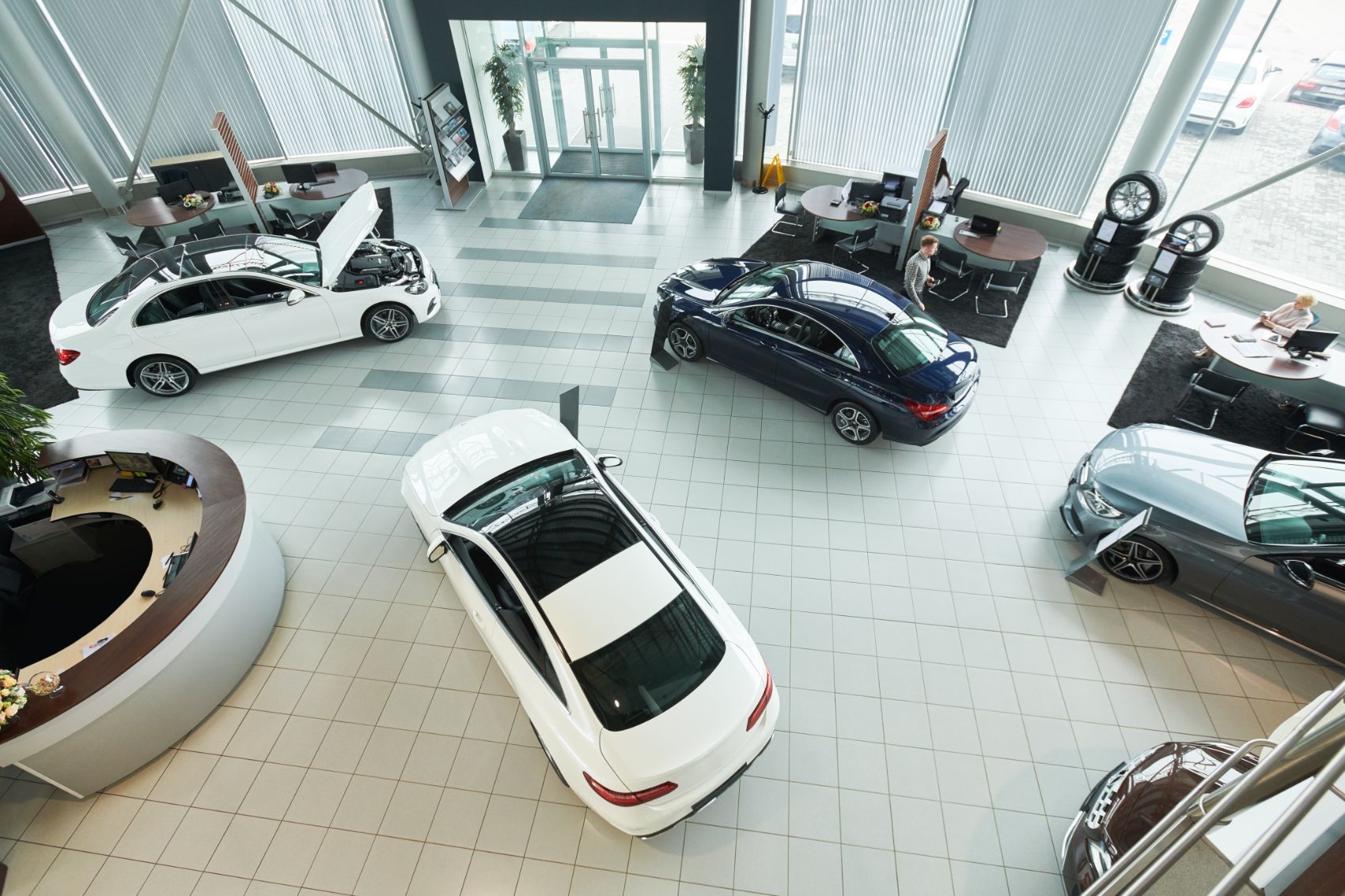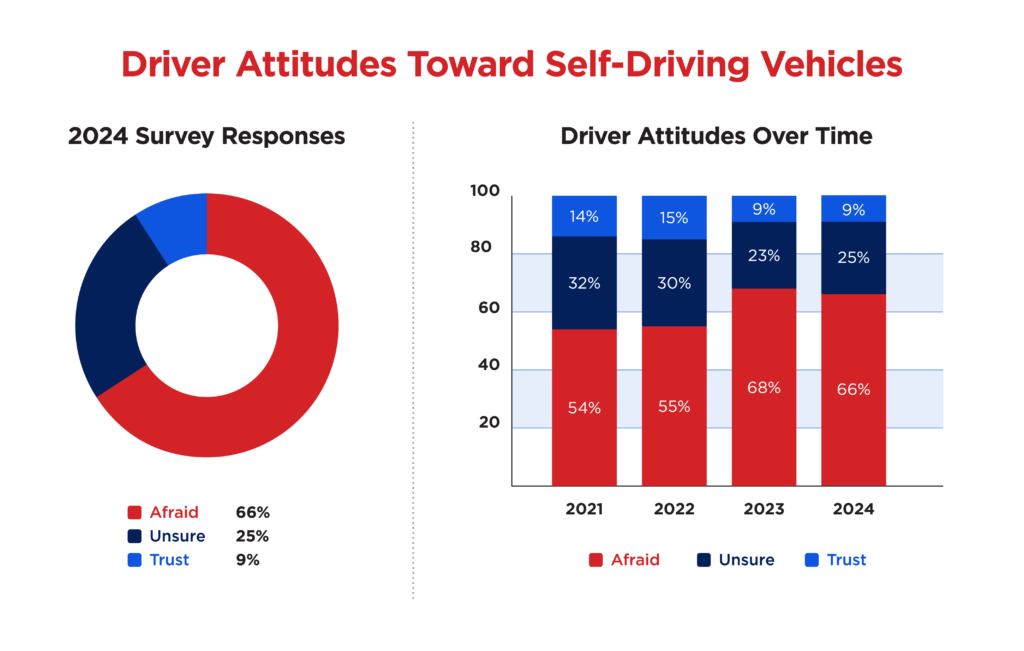
AVs Fail To Gain Consumer Trust
While recent incidents involving fully self-driving cars have caused fear, mistrust, and uncertainty to spike among the general public, inclination toward semi-autonomous technologies has actually increased.
The AAA Foundation for Traffic Safety released its annual Autonomous Vehicle Survey, which analyzed U.S. drivers’ attitudes toward self-driving vehicles. The 2024 survey report, titled Fear of Self-Driving Cars Persists as Industry Faces an Uncertain Future, was published in mid-March by AAA.
“There has been an increase in consumer fear over the past few years,” said Greg Brannon, Director of Automotive Engineering Research for AAA. “Given the numerous and well-publicized incidents involving current vehicle technologies, it’s not surprising that people are apprehensive about their safety.”
Data Comparison Over Time
The AAA Foundation for Traffic Safety has been conducting its annual Autonomous Vehicle Survey since 2016, but comparable data is available from 2021 onwards due to changes in methodology. For its 2024 Autonomous Vehicles Survey, AAA focused on three main areas or emotions:
- Afraid: 66 percent of participants were found to be fearful about self-driving technology, which indicates increasing apprehension over the last two years, according to AAA data.
- Unsure: 25 percent of participants expressed uncertainty with regard to autonomous vehicle technology.
- Trust: The graph below shows a drastic decline from an already low 14 percent in 2021 to just nine percent in 2024.
“We were not expecting such a dramatic decline in trust from previous years,” Brannon said in reference to the 2023 Autonomous Vehicle Survey from AAA, which also saw a drop in consumer trust. “Although with the number of high-profile crashes that have occurred from over-reliance on current vehicle technologies, this isn’t entirely surprising.”
Continued Interest In ADAS
Despite their lack of trust in fully self-driving cars, survey participants showed an inclination toward certain ADAS features. The 2024 Autonomous Vehicle Survey from AAA found that 59 percent of U.S. drivers would want reverse automatic emergency braking equipped on their next vehicle, while 57 percent said they would want automatic emergency braking.
Other desirable ADAS features for a next vehicle purchase included lane-keeping assist (56 percent), adaptive cruise control (48 percent), and active driving assist (42 percent). These findings match a 2024 Salesforce study indicating consumers would pay extra for certain ADAS features.
In the 2024 Autonomous Vehicle Survey from AAA, most said they feel confident technologies like automatic emergency braking will work effectively if another car, pedestrian, child, or bicyclist is in front of or behind the vehicle. However, AAA pointed to prior research conducted by the organization that found only one of 40 test collisions were prevented by reverse automatic emergency braking.
Trust Through Transparency
Despite the unavailability of fully self-driving vehicles for purchase by consumers, four in 10 believe they can buy a car that drives itself while they sleep. According to AAA, this is due to the limited understanding and inconsistent nomenclature of ADAS features available in the market.
The AAA Foundation for Traffic Safety, along with five other leading organizations, have come forward to encourage a standardized naming convention for today’s most common ADAS features. The standardized naming structure is intended to disseminate the intent and functionality of these systems, consequently helping consumers to understand that these features are to assist and not replace a vigilant driver.
AAA joins Consumer Reports, J.D. Power, the National Safety Council, PAVE, and SAE International as part of the initiative.
“AAA looks to collaborate with automakers to establish uniformity in system naming and performance across the industry. By working together, we can assist consumers in understanding the technology present in their vehicles and educate them on how, when, and where to use such systems properly,” Brannon said. “This initiative will help instill confidence in the drivers of the cars of tomorrow with greater levels of automated technologies.”



